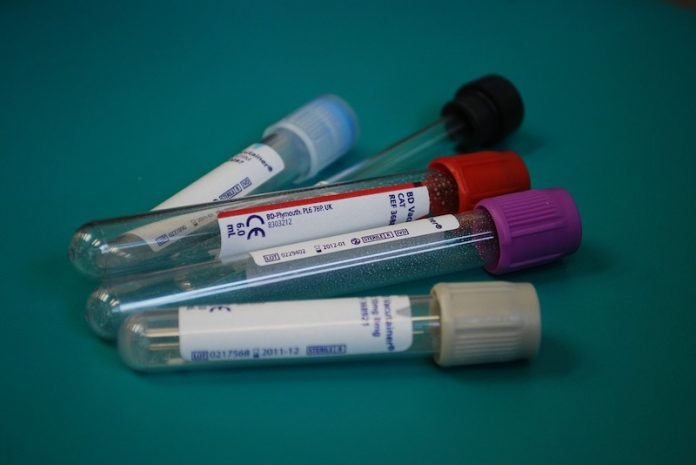
Many patients with concussion have normal CT scans and are discharged from the hospital without follow-up.
In a new study, researchers reported a blood test that is currently under development and costs a fraction of the price of a brain scan may flag concussion in these CT-negative patients.
This enables them to be evaluated for long-term complications
The research was led by UC San Francisco.
The researchers tracked 450 patients with suspected traumatic brain injury (TBI)—which includes concussion or mild TBI—who had been admitted to one of 18 level 1 trauma centers throughout the nation.
The patients, whose injuries were mainly attributed to traffic accidents or falls, all had normal CT scans,
Within 24 hours of their accidents, the patients had their blood drawn to measure for glial fibrillary acidic protein, a marker correlating to TBI.
The team used a device by Abbott Laboratories called i-STAT Alinity, a handheld portable blood analyzer, currently unavailable in the U.S., that produces test results in minutes.
The researchers later confirmed the blood test results against MRI, a more sensitive and expensive scan that is not as widely available as CT but offers a more definitive diagnosis of TBI.
They found that 120 of these 450 patients (27%) had an MRI that was positive for TBI.
To assess the accuracy of the blood test, researchers compared the results of the patients whose CT-negative TBIs were confirmed by MRI, with a group of healthy participants as well as a cohort of patients with orthopedic injuries.
They found that the average protein value of the blood samples of patients with positive MRIs was 31.6 times higher than those with orthopedic injuries and nearly 52 times that of the healthy participants.
The protein was elevated even in the patients with normal MRIs, suggesting that the test may be sensitive to injury undetectable by MRI.
The team says n the future, the blood test may help clinicians decide who can safely avoid a CT scan, with the advantage of not exposing patients to radiation from a CT.
Additionally, the blood test may be a useful tool for those patients in trauma centers and emergency departments, whose symptoms may be altered by substance use.
The blood test may also clarify the diagnosis in patients with co-existing conditions or those who take medications that may impact speech and behavior.
One author of the study is Geoffrey Manley, MD, Ph.D., senior author of the study, professor of neurosurgery at UCSF.
The study is published in The Lancet Neurology.
Copyright © 2019 Knowridge Science Report. All rights reserved.



